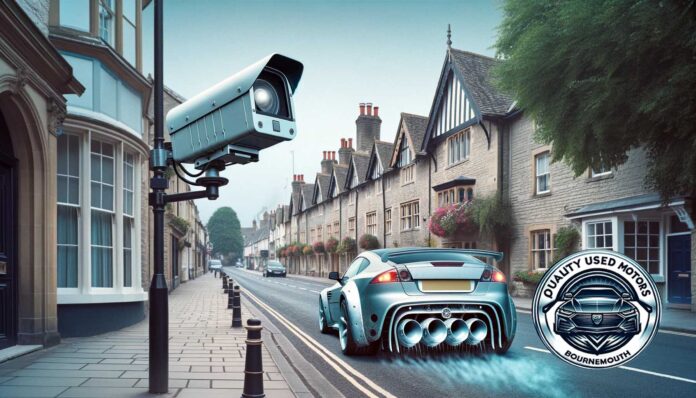In an innovative move towards tranquillity, the UK is gearing up to deploy noise-detecting cameras across the nation, targeting the thunderous roar of modified exhaust systems—a favourite among young driving enthusiasts. Following a promising trial, these acoustic vigilantes, capable of identifying and documenting the cacophony produced by loud vehicles, are heralded as the next step in urban and rural peacekeeping.
Conducted in diverse locations such as Keighley, Bristol, Great Yarmouth, and Rubery, Birmingham, from late October 2022 to early February 2023, the noise camera trial aimed to gauge the prevalence of vehicles breaching the peace with their booming exhausts. The technology marries video surveillance with sensitive microphones to pinpoint and prosecute the auditory offenders, creating an indisputable digital evidence package. With £300,000 invested in the pilot, the initiative underscores a robust effort to equip local enforcers with the means to maintain auditory decorum on the streets.
The findings, encapsulated in the “Roadside Vehicle Noise Measurement Phase 3 Part C” report, suggest the next course of action: live trials to refine the use of this technology in real-world enforcement scenarios. This hands-on approach will integrate the captured evidence with administrative systems, paving the way for a potential nationwide adoption. The report further recommends concurrent public perception studies to tailor the deployment strategy and enforcement tactics, ensuring the technology’s harmonious integration into daily life.
This move is part of a broader agenda detailed in the Government’s Plan for Drivers, which also casts noise cameras as a pivotal tool in curbing the proliferation of illegally modified vehicles. Notably, the Royal Borough of Kensington and Chelsea has already deployed these acoustic sentinels to quell the uproar caused by high-performance vehicles, with a notable crackdown on sports cars habitually revving their engines.
With the technology set to detect sounds exceeding 80 decibels, early results from a pilot between September and December 2020 are telling: nearly 2,000 activations resulting in 163 fines and 69 cautions, underlining the system’s efficacy. Funded through the Neighbourhood Community Infrastructure Levy, this initiative not only represents a stride towards serenity but also a clear message to those embellishing their cars with thunderous exhaust systems: the streets are no place for noise pollution. As the UK positions itself at the forefront of this acoustic revolution, the resonating question remains: will this lead to a quieter, more peaceful urban soundscape, or will it drive a wedge between car enthusiasts and peace-seeking residents?








